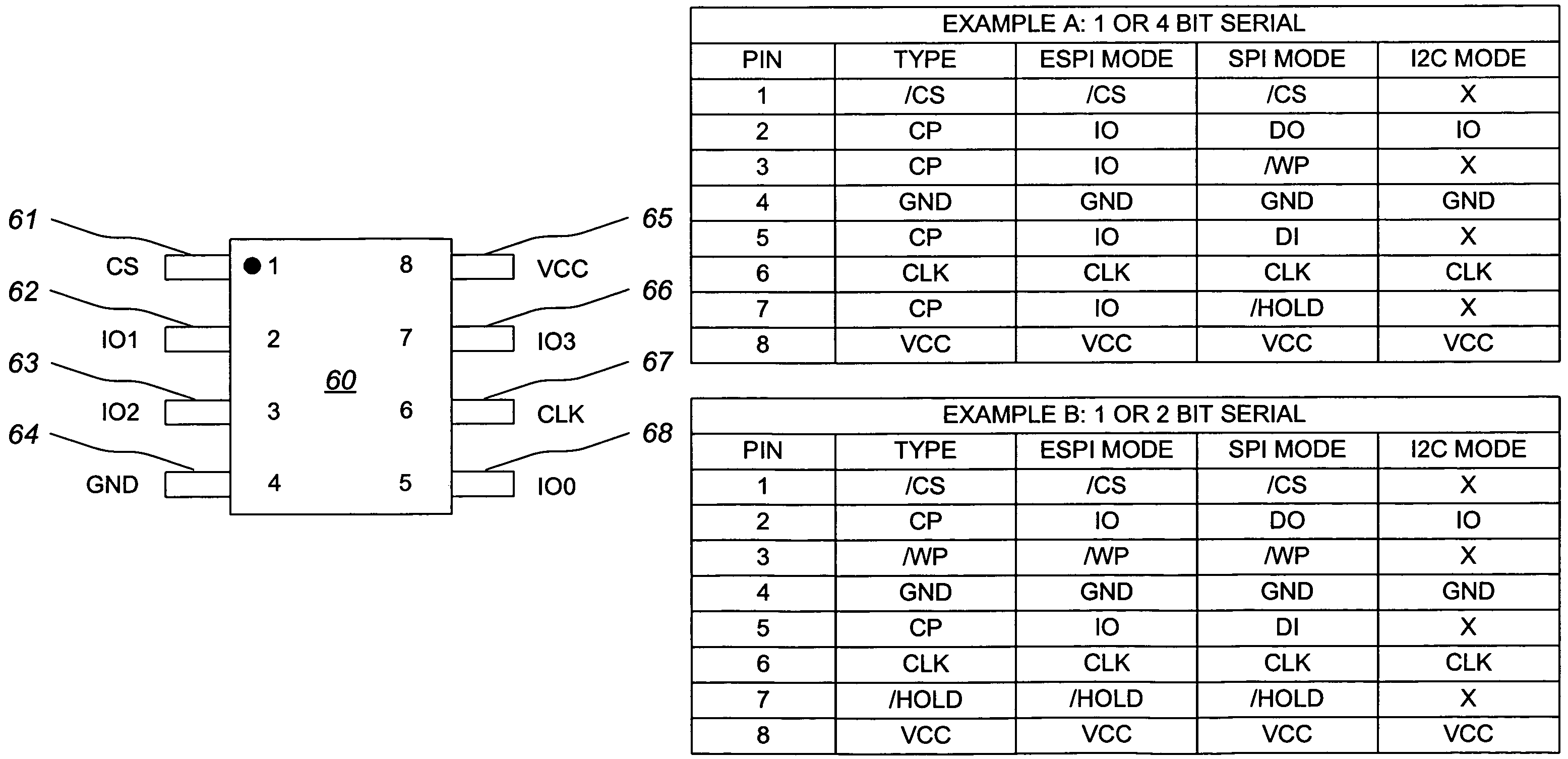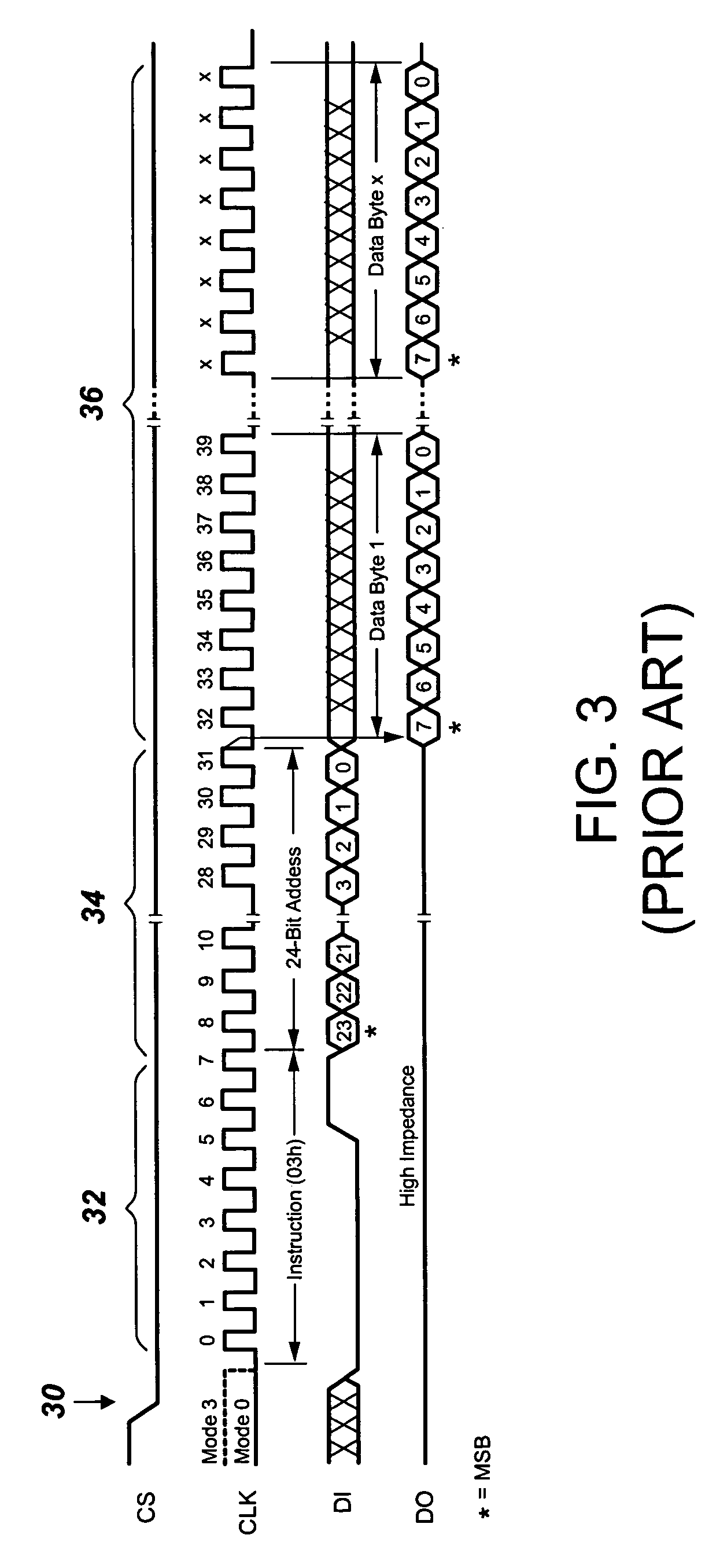Serial flash semiconductor memory
a semiconductor memory and serial flash technology, applied in the field of flash semiconductor memory, can solve the problems of increasing density requirements, serial flash tends to consume less power, and the overhead of most application specific controllers, and achieves the effects of improving performance and features, reducing pin counts, and accelerating transfer rates and code execution capabilities
- Summary
- Abstract
- Description
- Claims
- Application Information
AI Technical Summary
Benefits of technology
Problems solved by technology
Method used
Image
Examples
example b
[0060]In Example B, one of the pins is a data output pin and the other three pins are IO pins. In ESPI mode, one of the IO pins is used as a data input pin and the remaining two other pins are used as data IO pins so that three bits may be input using the IO pins and three bits may be output using the DO pin and two of the IO pins. In SPI mode, one IO pin is used as a data input pin. In I2C mode, one of the IO pins is used as a data IO pin.
[0061]In Example C, one of the pins is a data input pin and the other three pins are IO pins. In ESPI mode, one of the IO pins is used as a data output pin and the remaining two other pins are used as data IO pins so that three bits may be output using the IO pins and three bits may be input using the DI pin and two of the IO pins. In SPI mode, one IO pin is used as a data output pin. In I2C mode, one of the IO pins is used as a data IO pin.
[0062]In Example D of FIG. 8, one pin is a data input pin, one pin is a data output pin, and the other two p...
PUM
 Login to View More
Login to View More Abstract
Description
Claims
Application Information
 Login to View More
Login to View More - R&D
- Intellectual Property
- Life Sciences
- Materials
- Tech Scout
- Unparalleled Data Quality
- Higher Quality Content
- 60% Fewer Hallucinations
Browse by: Latest US Patents, China's latest patents, Technical Efficacy Thesaurus, Application Domain, Technology Topic, Popular Technical Reports.
© 2025 PatSnap. All rights reserved.Legal|Privacy policy|Modern Slavery Act Transparency Statement|Sitemap|About US| Contact US: help@patsnap.com



